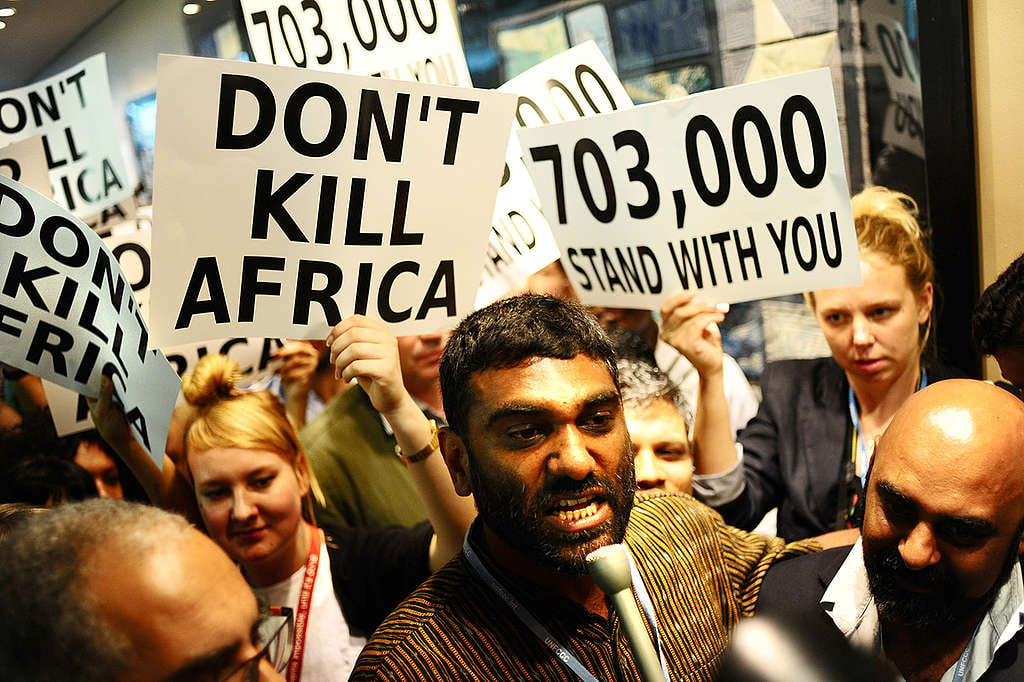Originally published in the Business Daily.
Climate change and COVID-19 continue to wreak havoc upon communities in Africa. Droughts, floods, cyclones, and locust invasions have caused far reaching damage to communities, livelihoods, ecosystems and infrastructure. If the Kenyan president’s speech is anything to go by, the climate crisis is indeed a key defining issue and an emerging security challenge in our society. The current climate crisis is exacerbating already pre-existing systemic challenges of inequality and injustices in our neighbourhoods. It is a risk multiplier whose implications on the lives, livelihoods, environment and security are a perceptible reality.
Increasingly the climate crisis is becoming hard to ignore especially in Africa. It raises a lot of concerns on how African countries are dealing with climate resilience. In agreement with the president’s sentiments, we can no longer ignore the threats posed by climate change. Scientists warn that if we do not take drastic and urgent action, the impacts of the climate crisis can only get worse with time. We are in a climate emergency and beyond rhetoric and mere acknowledgement urgent and radical actions need to be taken by our political leaders to protect communities and halt the impacts of the climate crisis.
Political leaders have the responsibility of harnessing capacity to build resilience among affected neighbourhoods, at the same time mobilising resources and fostering investments that will contribute to a reduction in carbon emissions. Africa has plenty of resources and has the potential to be a world leader in the fight to halt the climate crisis. However, being a world leader in stopping the eminent catastrophic climate change does not include investments in development projects that will increase global carbon emissions.
In Africa and Kenya in particular, reliable and affordable sources of energy will be more important in modernising agriculture, supporting expansion of industry and helping communities build resilience to the climate change impacts. Studies indicate these sources of energy can improve and save livelihoods, lives and ecosystems. The source of energy that Kenya chooses to invest in has the potential of helping respond to the challenges of climate change and build resilience or exacerbating the existing challenges.
Majority of Kenyans do not have access to clean and reliable energy. Energy access will play a key role in enabling Kenyans to respond to the challenges of climate change. Ensuring universal access to clean energy for Kenyans needs to be the leadership’s priority. Research holds that decentralised energy systems powered by renewable energy sources such as solar and wind have the potential of improving energy affordability and access for communities, improving livelihoods, reducing carbon emissions and helping build resilience to the challenges presented by climate disruptions.
The Kenya least cost power development plan indicates that renewable energy sources such as geothermal, wind and solar are more competitive in terms of cost, improving accessibility and addressing climate emergency compared to polluting energy sources such as coal and nuclear. The president’s speech indicates the existing failure by the African leadership in addressing the challenges presented by climate change. It is time for the African leadership to foster collaboration, utilise the huge renewable energy potential that the continent posits and increase a continental ambition in tackling the climate emergency. The African leadership needs to prioritise dropping ambitions for investments that will curtail efforts to protect people and the environment such as investments in polluting energy technologies such as coal.
The Kenyan president’s speech points to a direction that all African leadership needs to embrace. Kenya has the responsibility of leading the way through actions. This means that Kenya’s authorities need to come clear on their intentions of protecting people from further climate destruction. And, protecting people will mean announcing a drop in ambitions of investing in a coal power plant in Lamu and coal mining in Kitui and increasing investments in solar, wind and geothermal.
Kenya’s parliamentarians have the responsibility of echoing the president’s commitment by rejecting any budgetary allocations that will increase carbon emissions such as plans to explore and develop coal projects in the current budgetary allocations. Instead the legislators have the onus of reallocating the resources for decentralised energy investments powered by solar and wind and ensuring increased access to reliable and affordable energy. Also members of the county assemblies have an obligation to resist any funding or projects that are aimed at increasing vulnerability of their constituents. Counties need to promote investments that will enable Kenyans respond to the challenges posed by the climate crisis and build resilience by protecting the environment and livelihoods.
The needs of the frontline communities have to be prioritised in policy and investment decisions undertaken by our political leaders. Indeed it is time to harness regional cooperation, capitalise on Africa’s resource potential and offer world leadership by upgrading its nationally determined commitments. To save communities from social, economic and security disruptions, it is time for Africa’s political leadership to urgently and radically address the climate emergency.
By Amos Wemanya,
Greenpeace Africa Campaigner.
 Get Involved
Get Involved
